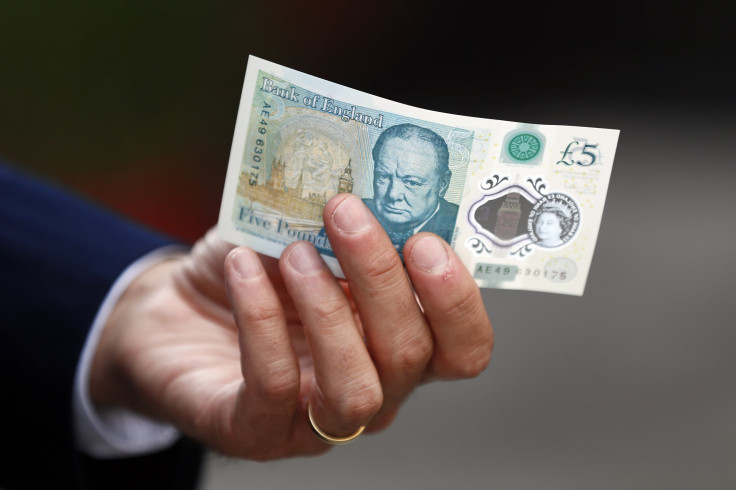What's Money Made Of? Bank Of England Admits New Fiver Contains Animal Fat

Thousands of people have signed an online petition urging the Bank of England to ditch its new 5 pound notes following revelations the fivers are made of polymers that contain rendered animal fat. The bills entered circulation in September.
BOE confirmed the notes contain tallow, the same substance found in candles and soap.
The notes are the bank’s first effort at printing on plastic, with 10-pound and 20-pound bills to follow by 2020. The notes are expected to last longer and are more secure than their paper counterparts, Bloomberg reported.
Nearly 80,000 people had signed a Change.org petition by late Tuesday, calling the notes “unacceptable to millions of vegans, vegetarians, Hindues, Sikhs, Jains and others in the U.K.”
The petition demands the notes, some 440 million, be pulled from circulation.
Hi @Jools_Orca there is a trace of tallow in the polymer pallets used in the base substrate of the polymer £5 notes
— Bank of England (@bankofengland) November 28, 2016
The petition was started by Doug Maw, who said he was “disgusted” by the notes.
"I don't think anything will happen about what has already been made, but I just hope they produce new ones without using animal fats,” he told Sky News.
The polymer is produced by Innovia Films. A spokeswoman told CNN Money the touch of tallow helps control static. She said scientists are working to eliminate the tallow “but obviously that will take time.”
Innovia supplies polymer for currency to 23 other countries, including Australia, Canada, Mexico and New Zealand, but it was unclear of they contain animal fats as well.
Collectors have spent thousands on the new notes — some selling for thousands of pounds each on eBay — but many are not nearly as enamored, complaining the notes get stuck in machine and shrink in tumble dryers, Quartz reported.
This isn’t the first time the fiver has sparked controversy. People were upset when it was announced Elizabeth Fry would be replaced by Winston Churchill on the bills. To assuage protesters, BOE decided to put Jane Austen on the new 10-pound notes, which come out next summer.
Central banks have been switching to polymers because of its flexibility, ability to repel dirt and durability, as well as the ability to embed security measures.
© Copyright IBTimes 2025. All rights reserved.






















